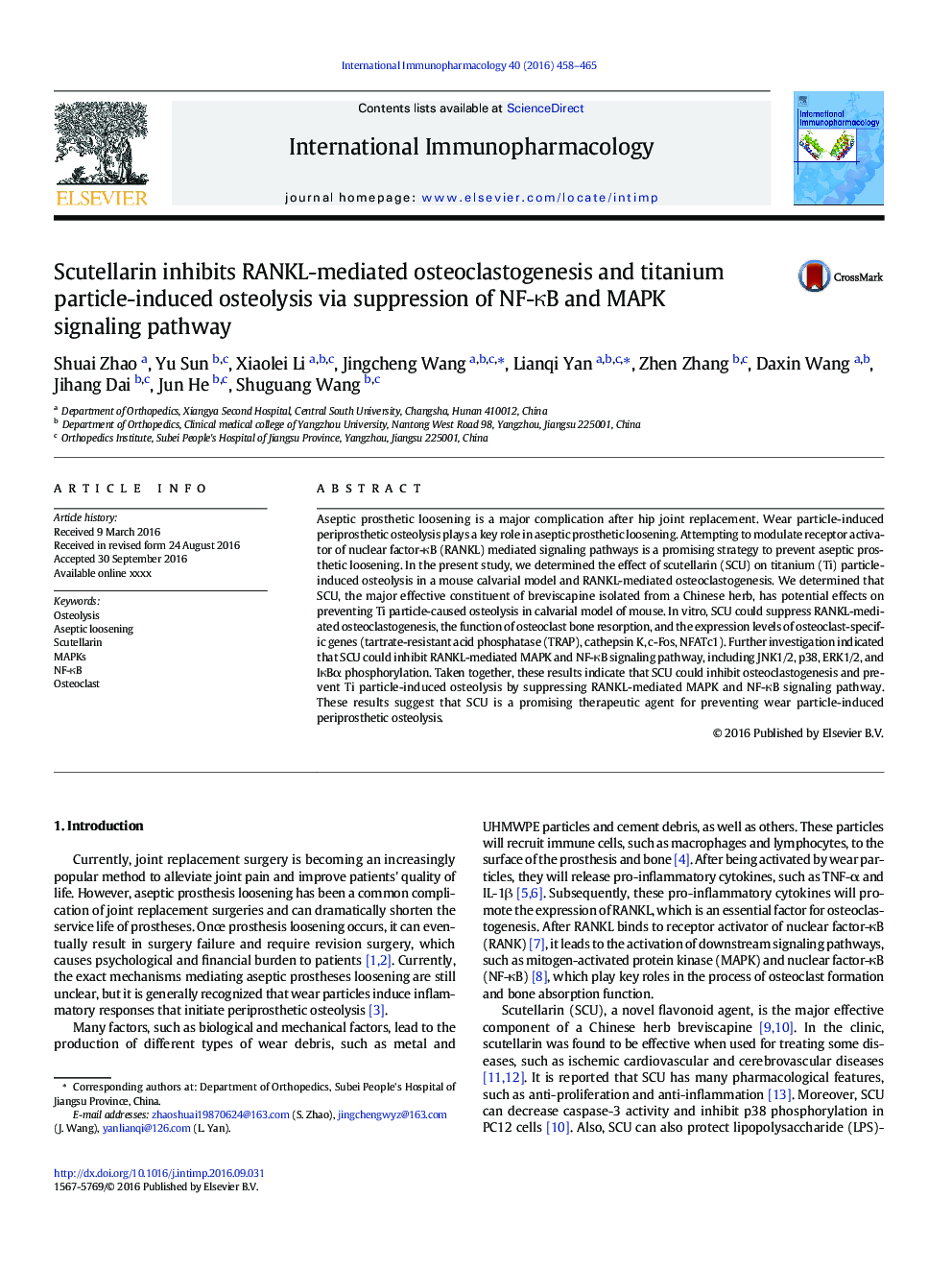| Article ID | Journal | Published Year | Pages | File Type |
|---|---|---|---|---|
| 8531722 | International Immunopharmacology | 2016 | 8 Pages |
Abstract
Aseptic prosthetic loosening is a major complication after hip joint replacement. Wear particle-induced periprosthetic osteolysis plays a key role in aseptic prosthetic loosening. Attempting to modulate receptor activator of nuclear factor-κB (RANKL) mediated signaling pathways is a promising strategy to prevent aseptic prosthetic loosening. In the present study, we determined the effect of scutellarin (SCU) on titanium (Ti) particle-induced osteolysis in a mouse calvarial model and RANKL-mediated osteoclastogenesis. We determined that SCU, the major effective constituent of breviscapine isolated from a Chinese herb, has potential effects on preventing Ti particle-caused osteolysis in calvarial model of mouse. In vitro, SCU could suppress RANKL-mediated osteoclastogenesis, the function of osteoclast bone resorption, and the expression levels of osteoclast-specific genes (tartrate-resistant acid phosphatase (TRAP), cathepsin K, c-Fos, NFATc1). Further investigation indicated that SCU could inhibit RANKL-mediated MAPK and NF-κB signaling pathway, including JNK1/2, p38, ERK1/2, and IκBα phosphorylation. Taken together, these results indicate that SCU could inhibit osteoclastogenesis and prevent Ti particle-induced osteolysis by suppressing RANKL-mediated MAPK and NF-κB signaling pathway. These results suggest that SCU is a promising therapeutic agent for preventing wear particle-induced periprosthetic osteolysis.
Related Topics
Life Sciences
Immunology and Microbiology
Immunology
Authors
Shuai Zhao, Yu Sun, Xiaolei Li, Jingcheng Wang, Lianqi Yan, Zhen Zhang, Daxin Wang, Jihang Dai, Jun He, Shuguang Wang,
